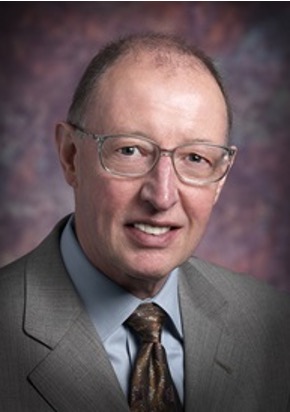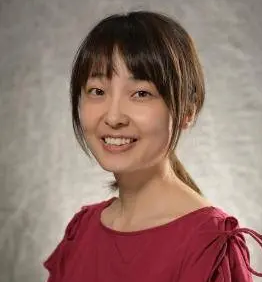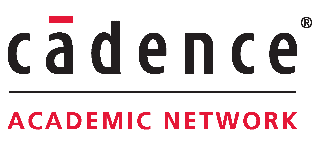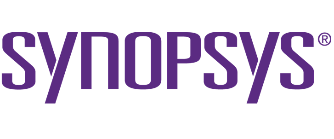2025 ACM Outstanding Ph.D. Dissertation Award in Electronic Design Automation
Call for Nominations
Design automation has gained widespread acceptance by the VLSI circuits and systems design community. Advancement in computer-aided design (CAD) methodologies, algorithms, and tools has become increasingly important to cope with the rapidly growing design complexity, higher performance and low-power requirements, and shorter time-to-market demands. To encourage innovative, ground-breaking research in the area of electronic design automation, the ACM’s Special Interest Group on Design Automation (SIGDA) has established an ACM award to be given each year to an outstanding Ph.D. dissertation that makes the most substantial contribution to the theory and/or application in the field of electronic design automation.
The award consists of a plaque and an honorarium of USD $1,000. The 2025 Award will be presented at ICCAD 2025 in November 2025. The award is selected by a committee of experts from academia and industry in the field and appointed by ACM in consultation with the SIGDA Chair.
Deadline for the 2025 Award: 30 April 2025
Eligibility and nomination requirements: For the 2025 Award, the nominated dissertation should date between 1 July 2023 and 31 December 2024. Each nomination package should consist of:
- The PDF file of the Ph.D. dissertation in the English language;
- A statement (up to two pages) from the nominee explaining the significance and major contributions of the work;
- A nomination letter from the nominee’s advisor or department chair or dean of the school endorsing the application;
- Optionally, up to three letters of recommendation from experts in the field.
The nomination materials should be emailed to sigda.acm@gmail.com (Subject: ACM Outstanding Ph.D. Dissertation Award in EDA). Recommendation letters may be sent separately.
Award Committee:
Ismail Bustany (AMD)
Mustafa Badaroglu (QualComm)
Jintong Hu (Pittsburg)
Sharad Malik (Princeton)
Mark Ren (Nvidia)
Aviral Shrivastava (ASU)
Linghao Song (Yale)
Peh Li Shiuan (NUS)
Natarajan Viswanathan (Cadence)
Robert Wille (TUM)
All standard conflict of interest regulations as stated in ACM policy will be applied. Any award committee members will recuse themselves from consideration of any candidates where a conflict of interest may exist.
Past Awardees
| 2024 | Lukas Burgholzer, for the dissertation “Design Automation Tools and Software for Quantum Computing”, Johannes Kepler University Linz. Advisors: Robert Wille and Jens Eisert. |
| 2023 | Zhiyao Xie, for the dissertation “Intelligent Circuit Design and Implementation with Machine Learning”, Duke University, Advisors: Yiran Chen and Hai Li |
| 2022 | Ganapati Bhat, for the dissertation “Design, Optimization, and Applications of Wearable IoT Devices”, Arizona State University, Advisor: Umit Y. Ogras |
| 2021 | Ahmedullah Aziz, for the dissertation “Device-Circuit Co-Design Employing Phase Transition Materials for Low power Electronics”, Purdue University, Advisor: Sumeet Gupta. |
| 2020 | Gengjie Chen, for the dissertation “VLSI Routing: Seeing Nano Tree in Giga Forest,” The Chinese University of Hong Kong. Advisor: Evangeline Young. |
| 2019 | Tsung-Wei Huang, for the dissertation “Distributed Timing Analysis“, University of Illinois, Urbana-Champaign. Advisor: Martin D. F. Wong. |
| 2018 | Xiaoqing Xu, for the dissertation “Standard Cell Optimization and Physical Design in Advanced Technology Nodes,” University of Texas at Austin. Advisor: David Z. Pan. |
| Pramod Subramanyan, for the dissertation “Deriving Abstractions to Address Hardware Platform Security Challenges,” Princeton University. Advisor: Sharad Malik. | |
| 2017 | Jeyavijayan Rajendran, for the dissertation “Trustworthy Integrated Circuit Design,” New York University. Advisor: Ramesh Karri. |
| 2016 | Zheng Zhang, for the dissertation “Uncertainty Quantification for Integrated Circuits and Microelectromechanical Systems,” Massachusetts Institute of Technology. Advisor: Luca Daniel. |
| 2015 | Wenchao Li, for the dissertation “Specification Mining: New Formalisms, Algorithms and Applications,” University of California at Berkeley. Advisor: Sanjit Seshia. |
| 2014 | Wangyang Zhang, for the dissertation “IC Spatial Variation Modeling: Algorithms and Applicaitons,” Carnegie Mellon University. Advisors: Xin Li and Rob Rutenbar |
| 2013 | Duo Ding, for the dissertation “CAD for Nanolithography and Nanophotonics,” University of Texas at Austin. Advisor: David Z. Pan |
| Guojie Luo, for the dissertation “Placement and Design Planning for 3D integrated Circuits,” UCLA. Advisor: Jason Cong | |
| 2012 | Tan Yan, for the dissertation “Algorithmic Studies on PCB Routing,” defended with the University of Illinois at Urbana-Champaign. |
| 2011 | Nishant Patil, for the dissertation “Design and Fabrication of Imperfection-Immune Carbon Nanotube Digital VLSI Circuits,” Stanford University. |
| 2010 | Himanshu Jain, for the dissertation “Verification using Satisfiability Checking, Predicate Abstraction, and Craig Interpolation,” Carnegie Mellon University. |
| 2009 | Kai-Hui Chang, for the dissertation “Functional Design Error Diagnosis, Correction and Layout Repair of Digital Circuits”, University of Michigan at Ann Arbor. |
| 2008 | (No award is given this year) |
| 2007 | (No award is given this year) |
| 2006 | Haifeng Qian of University of Minnesota, Minneapolis, Department of Electrical and Computer Engineering, for the thesis entitled “Stochastic and Hybrid Linear Equation Solvers and their Applications in VLSI Design Automation”. |
| 2005 | Shuvendu Lahiri of Carnegie Mellon University, Department of Electrical and Computer Engineering, for a thesis entitled “Unbounded System Verification using Decision Procedure and Predicate Abstraction” |
| 2004 | Chao Wang of University of Colorado at Boulder, Department of Electrical Engineering, for a thesis entitled “Abstraction Refinement for Large Scale Model Checking” |
| 2003 | Luca Daniel of University of California, Berkeley Department of Electrical Engineering and Computer Science for a thesis entitled “Simulation and modeling techniques for signal integrity and electromagnetic interference on high frequency electronic systems” |
| Lintao Zhang of Princeton University Department of Electrical Engineering for a thesis entitled “Searching for truth: techniques for satisfiability of Boolean formulas.” | |
| 2002 | (No award is given this year) |
| 2001 | Darko Kirovski from University of California, Los Angeles Department of Computer Science for a thesis entitled “Constraint Manipulation Techniques for Synthesis and Verification of Embedded Systems.” The runner-up who received an honorable mention in that years ceremony was Michael Beattie of Carnegie Mellon University Department of Electrical and Computer Engineering for a thesis entitled “Efficient Electromagnetic Modeling for Giga-scale IC Interconnect.” |
| 2000 | Robert Brent Jones of Stanford University Department of Electrical Engineering for a thesis entitled “Applications of Symbolic Simulation To the Formal Verification of Microprocessors.” |






























